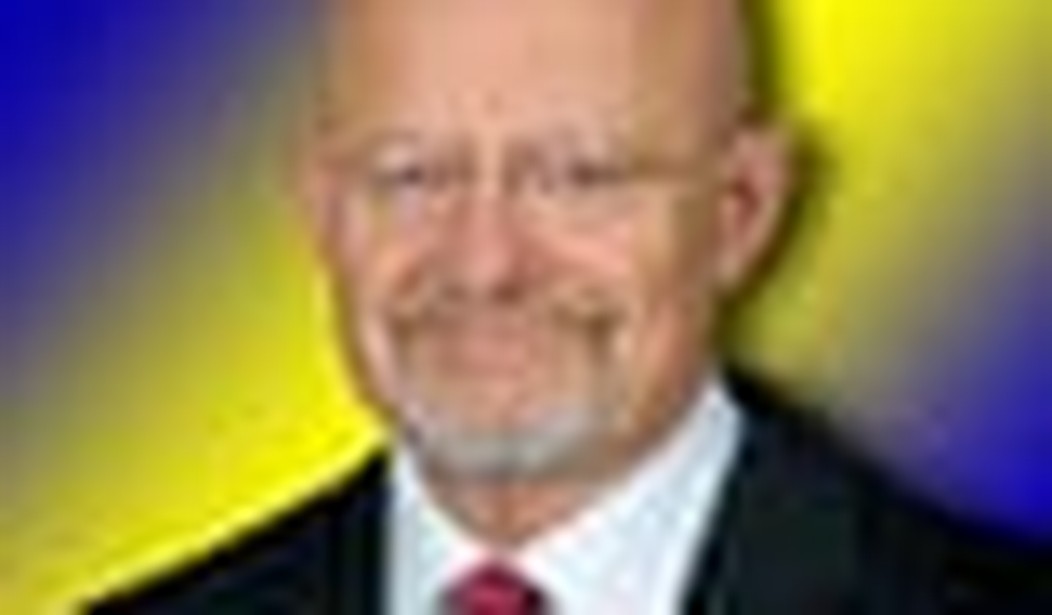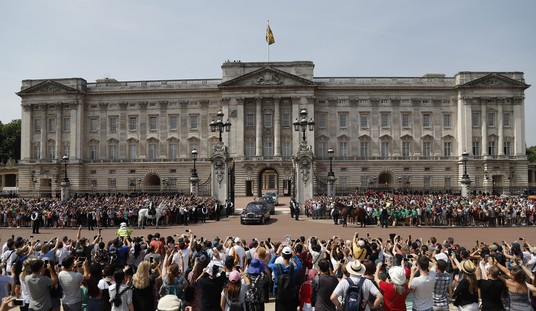Director of National Intelligence James Clapper doesn’t seem to understand that when a high-level official speaks in public, he isn’t just talking to the person addressing him or the American public. He’s talking to the world. And the message he just sent to Libya is that the U.S. believes Gaddafi will win and the rebels will lose. Senator Lindsey Graham is right. This should be Clapper’s last strike.
His morale-smashing statement came on the same day that the rebels were forced out of Ras Lanuf after losing Zawiya. It was also the same day that NATO rejected a no-fly zone at the behest of the U.S. and Germany and the alliance decided not to get involved militarily without UN authorization, setting the stage for further delays that may very well prove fatal to the rebels’ fight. Clapper’s remark could only be justified if it was an attempt to make the case for Western action. Instead, the message of the day was that the U.S. does not believe the rebels can win without help and they shouldn’t expect any.
This was not a closed-door testimony or classified intelligence assessment. The rebels usually dismiss the confident rhetoric of Gaddafi and his loyalists but as his son, Saif al-Islam, was saying, “victory is in sight,” he had the director of national intelligence agreeing with him. Now, every time the regime boasts, both sides will be reminded of who the U.S. believes will win. This is greatly damaging to the anti-Gaddafi cause and the image of the U.S., as this will be seen as a betrayal of the freedom fighters the West claims it wishes well. Even those who oppose military intervention should be dismayed at the undermining of the Libyan opposition.
There were loud calls for Clapper’s resignation after his outrageous description of the Muslim Brotherhood as “largely secular” last month, but a key point was missed. Attention focused on the factual inaccuracies of his description of the Brotherhood as a “very heterogeneous group, largely secular, which has eschewed violence and has described al-Qaeda as a perversion of Islam.” It seemed that no one focused on the motive behind the falsities: To downplay the threat from the Muslim Brotherhood.
Clapper’s goal was to paint the Islamist group as moderate by comparing it to al-Qaeda and saying it is decentralized with many different points of view. It was around the same time that President Obama said there are “strains of their ideology that are against the U.S.,” a gross understatement of what the group is all about. This should raise questions about who is advising the Obama administration about the Brotherhood, but it’s clear that the top intelligence official is among those that view the group as mostly benign.
It does not appear that Clapper has learned from his mistakes. He said he was misunderstood and that he meant the Brotherhood works through the secular Egyptian political system. He did not, however, say why the group does that. He either does not know that the Muslim Brotherhood views this as a means to achieving sharia-based governance or doesn’t want the American public to know.
His clarification did not address the other worrisome parts of his description. He did not address the fact that while the Brotherhood has denounced al-Qaeda and has “eschewed violence” in Egypt, it supports violent jihad in Muslim lands against infidel forces and Hamas is one of its branches. He did not clarify his false statement that the Brotherhood’s affiliates have “no overarching agenda.” The Brotherhood’s own documents describe their U.S. operations as “a kind of grand jihad in eliminating and destroying Western civilization from within and ‘sabotaging its miserable house.’” Are we really supposed to believe that the Brotherhood in America is committed to extremism but the Brotherhood in Egypt is not?
His answer did not consist of a few inarticulate words but was a thoroughly misleading representation of the Brotherhood. Ignorance at this high of a level is frightening and cannot be accepted. The U.S. cannot afford to have a director of national intelligence that answers a question about the Muslim Brotherhood by unwittingly facilitating its deceptive PR effort.
We must not also forget Clapper’s embarrassment in December. The Obama administration decided to have Diane Sawyer interview several of its top security officials all at once to prove that it is taking the holiday terrorism threat seriously. The news headlines blared that morning about how a dozen suspected terrorists were arrested in London planning attacks around Christmas. When asked about these arrests, Clapper was clueless.
The Obama administration first tried to cover for Clapper, saying Sawyer’s question was “ambiguous.” Shortly after, it was admitted that Clapper did not know about the holiday terror arrests even though he was about to be interviewed about preventing holiday terror plots. It was said that he did not have an immediate need to know because the arrests were not related to the U.S. homeland and no action was necessary on his part.
This was an unacceptable excuse. The director of national intelligence is not the director of the FBI or secretary of homeland security. His job is to oversee the entire intelligence community covering both foreign and domestic, not just the homeland. And if there’s any time to know about the thwarting of major terror plots, it’s before an important interview on the subject.
All of these mistakes have happened since December, a period of less than four months. What will the next four months bring? It’s time for a new director of national intelligence.









Join the conversation as a VIP Member